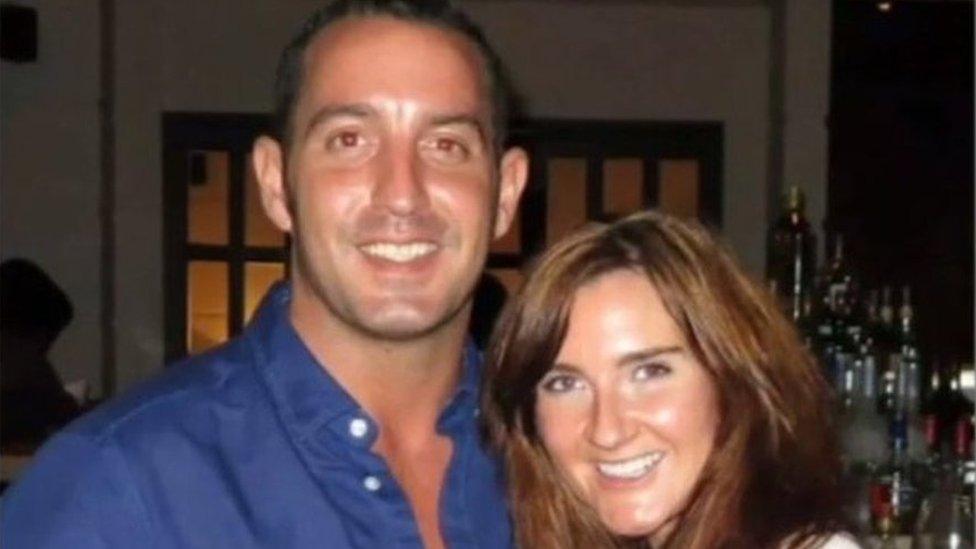Chennai Six jail term inspires 18-marathon challenge
- Published
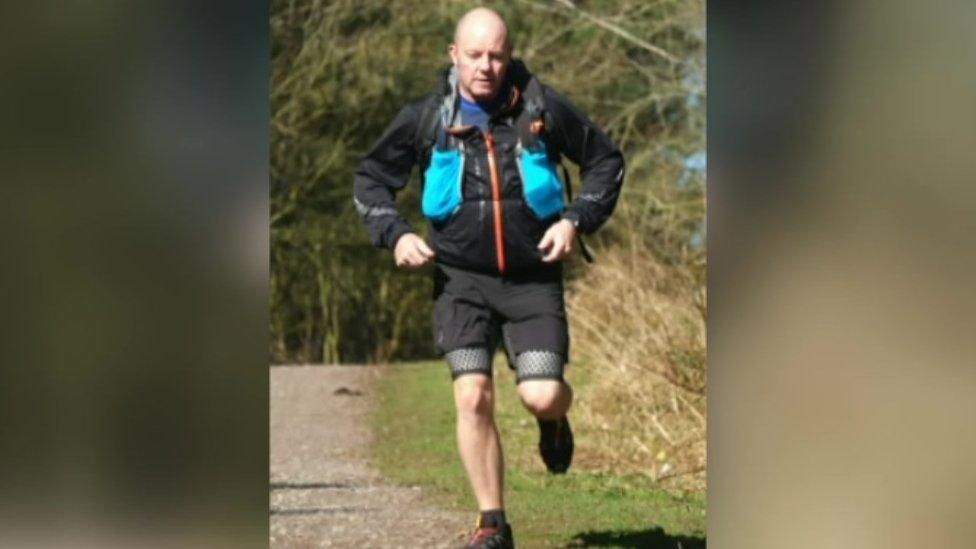
Ray Tindall, who was one of the so-called Chennai Six, is running 18 marathons in 18 days for charity
One of the so-called Chennai Six, jailed in India for four years on weapons charges, is running 18 marathons in 18 days for charity.
Ray Tindall, originally from Hull, but now living in Chester, said his inspiration was running thousands of miles around a prison track.
The former soldier said while in custody he ran a total of 7,652 miles around an 800m circuit.
He said he wanted to use the experience to do something positive.
Mr Tindall, along with five other British men, was imprisoned in 2013 after Indian officials found weapons and ammunition on a ship.
The six, who were working as guards on the anti-piracy vessel, were released in November following an appeal.
'Better person'
Talking about his time in custody, Mr Tindall said: "There was no point whingeing, whining and crying about it."
He said instead he used the time to "train as often as possible".
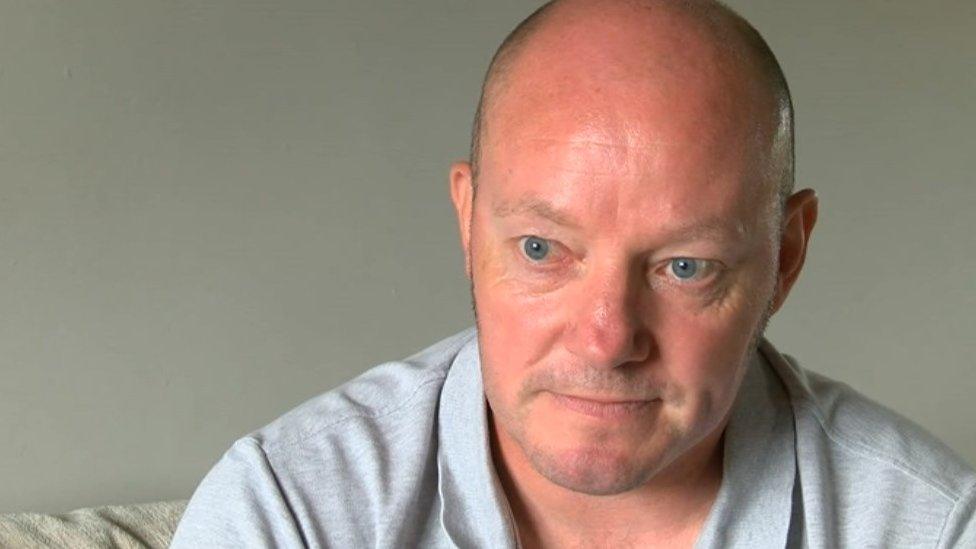
Ray Tindall estimates he ran a total of 7,652 miles around an 800m track at the prison
Mr Tindall said in some ways his ordeal had made him a better person and changed his outlook on life.
"I'm never going to get that time back so there is no point dwelling on it," he said.
"I used to chase the money, but have realised that money is not a priority in life - my family is."
The challenge starts on 20 September in Coed Llandegla forest, in north Wales, and ends on 7 October in Chester.
Proceeds will go to the Royal British Legion.

Who are the Chennai Six?
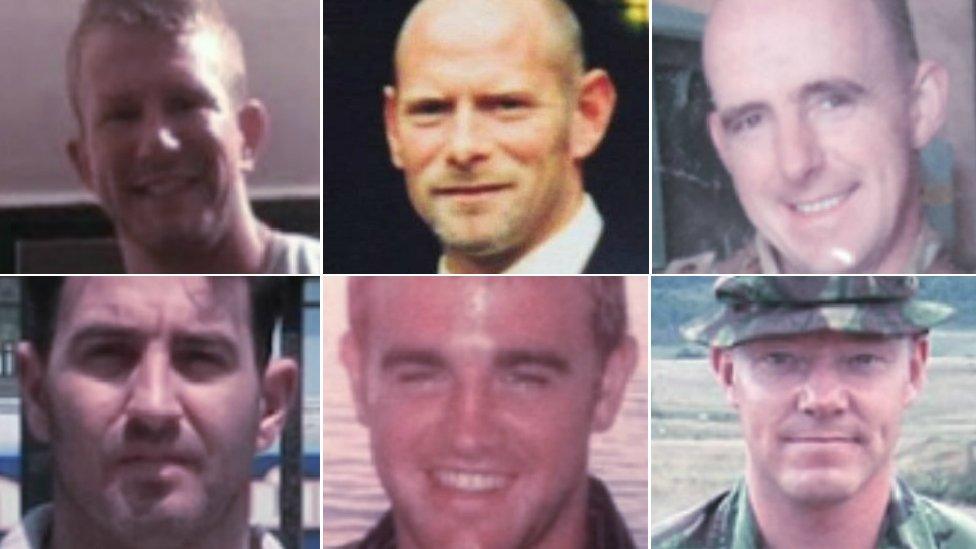
(From top left, clockwise) Nick Dunn, Paul Towers, Nick Simpson, Ray Tindall, John Armstrong and Billy Irving
The six men were working on the anti-piracy ship MV Seaman Guard Ohio, owned by the US-based company AdvanFort, when they were arrested in 2013.
They were held along with three Ukrainians, 14 Estonians and 12 Indians when customs officials and police found weapons and ammunition on board, which Indian authorities said had not been properly declared.
Initially the charges were quashed when the men argued the weapons were lawfully held for anti-piracy purposes and the paperwork, issued by the UK Government, was in order.
But a lower court reinstated the prosecution and in January 2016 they were sentenced to five years in prison.

- Published7 June 2018
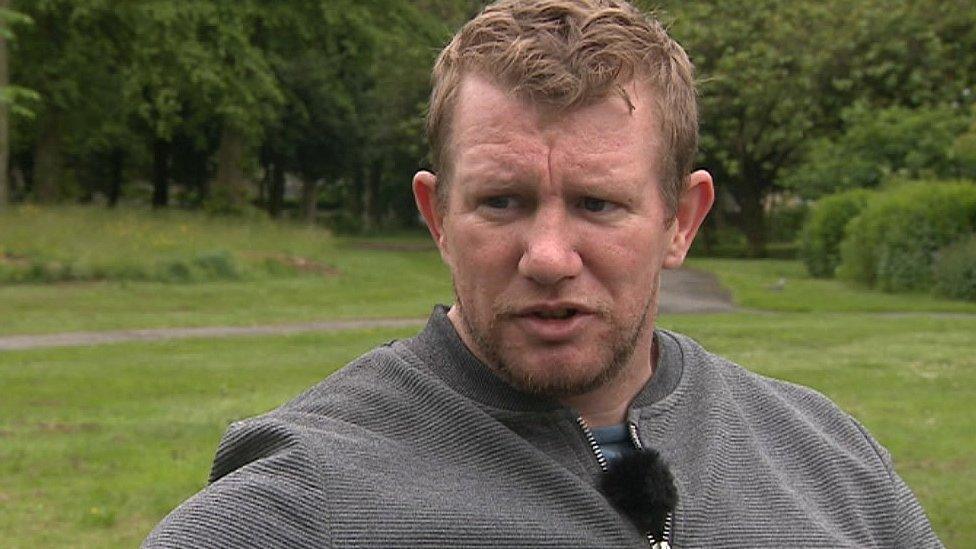
- Published7 December 2017

- Published6 December 2017
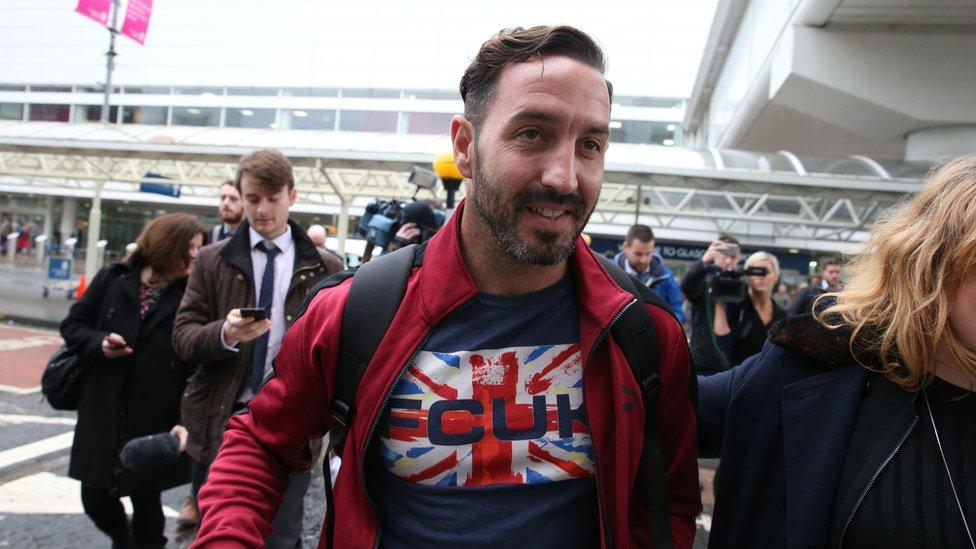
- Published30 November 2017

- Published28 November 2017
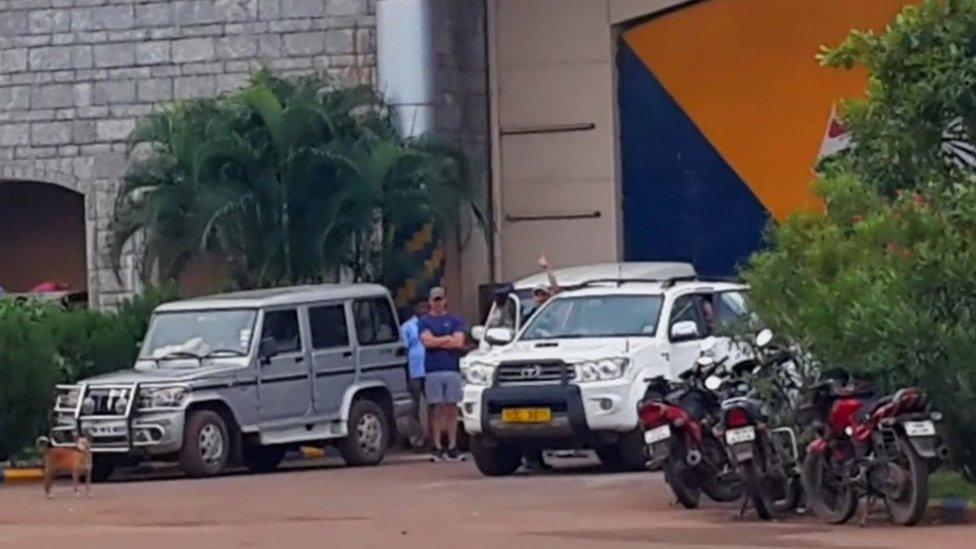
- Published27 November 2017
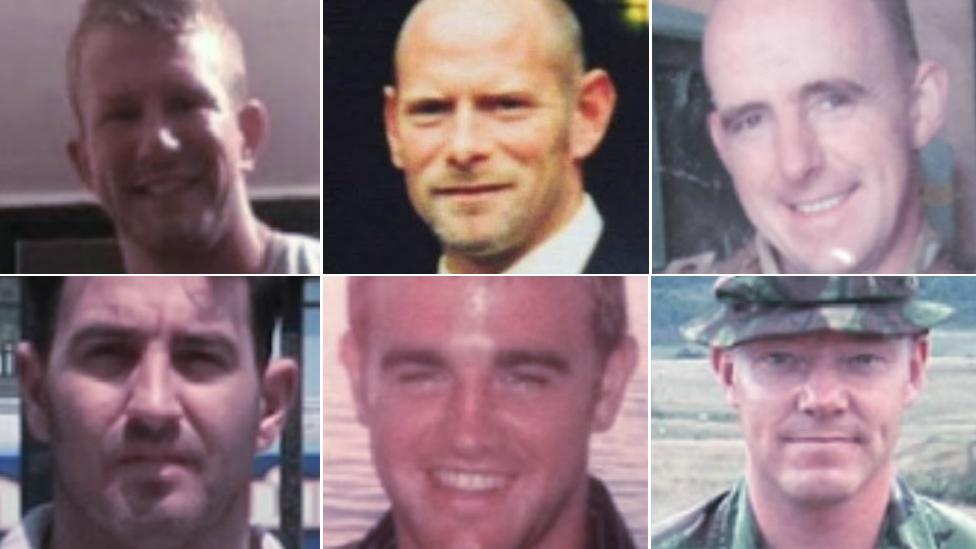
- Published27 November 2017
